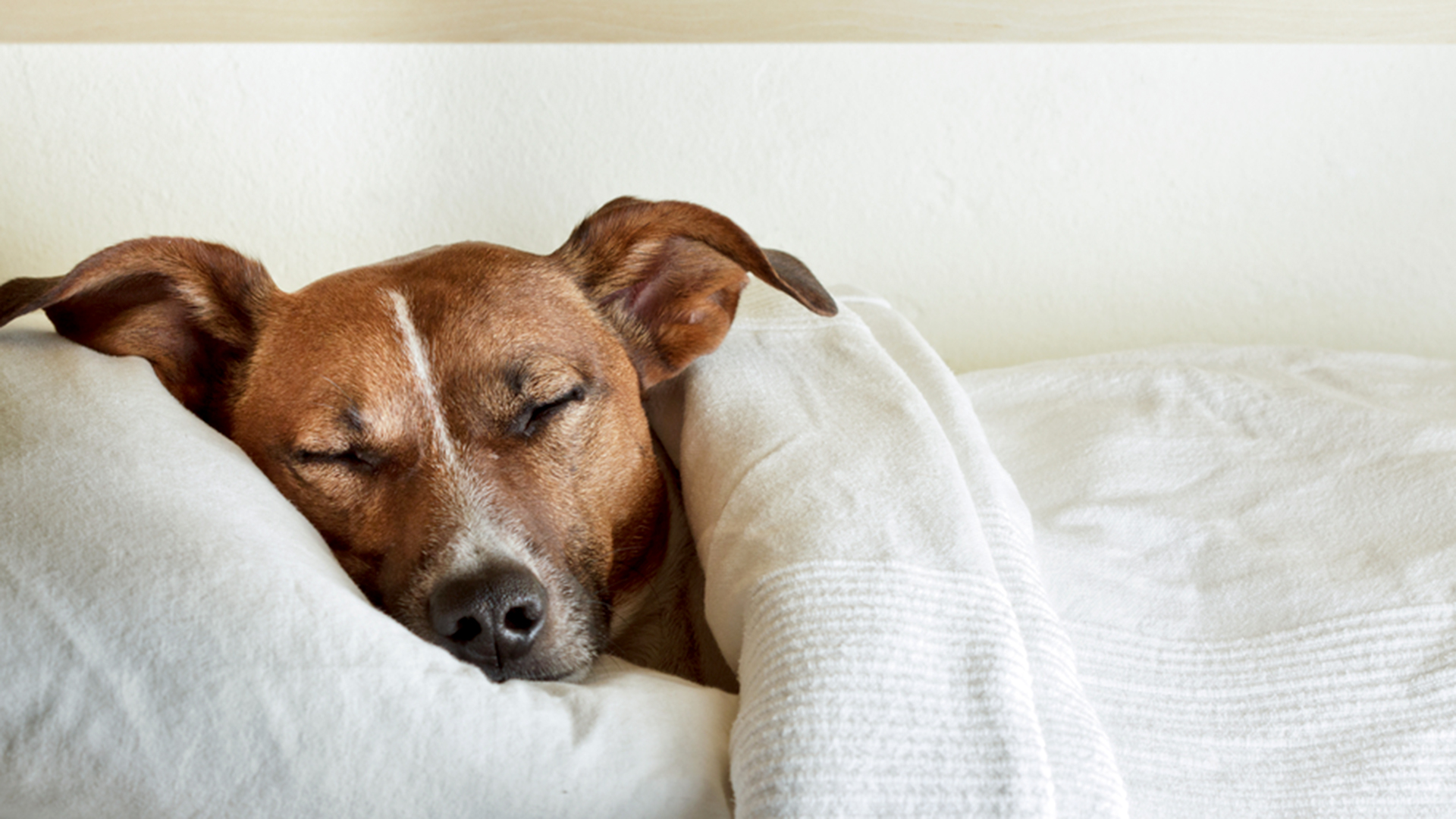Laurie's Blogs.
Sep 2016
The unfortunate link between chronic pain and sleep disturbances

Last Monday, I woke up with neck pain. I woke to find myself sleeping on my stomach with my head turned to the side (and a pillow overtop in order to minimize the sound of my husband snoring). Well what started out as stiffness soon turned into angry nerve pain, and I subsequently did everything I could that day to try to settle it down. But more to the point of this blog… I noted that my sleep was affected for days afterwards. I couldn’t get comfortable, and moving from side to side was painful.
So my pain-sleep experience sparked a desire to blog on this under-discussed topic in canine rehab and physiotherapy: Sleep and pain. We know that people with pain often have disturbed sleep. Pain has been reported to be associated with reduced sleep efficacy, reduced total sleep time, delayed sleep onset, greater fragmentation of sleep, increased activity during sleep and more non-restorative sleep. In people, sleep disturbances correlated with low back pain in 67% of symptomatic study subjects [Axen, 2016].
It is known that sleep disturbance can affect cognition and mood. To add insult to injury, lack of sleep can make pain worse!
What can be done to help break the cycle?
- Reduce napping during the day to allow for a more restful sleep at night. For a dog, this could mean leaving curtains open, a light on, and maybe some background music to promote more wakefulness during the day.
- Exercise, but not too late. Going for a walk? Maybe morning would be better, or as soon as an owner gets home from work instead of waiting until after dinner.
- Don’t over eat in the evening.
- Relax before bed. Perhaps a before bed relaxation massage could help a pet to sleep better.
- Routine. Try to have a consistent bedtime and wake up schedule.
- Owners may wish to give certain medications before bedtime instead of in the morning. Muscle relaxants (i.e. Robaxin / Methocarbamol), anti-nausea drugs (i.e. Gravol / Dramamine), opioids (i.e. Tramadol) or pain-killers (i.e. Gabapentin) might help sleep in addition to pain.
- Other natural sleep aids: Melatonin or a Magnesium supplement (see my Training Video on Magnesium) may be beneficial.
- White noise in the background may reduce disturbances. Try using a fan or a sound machine to improve sleep.
- A dog appeasing pheromone (DAP) collar (aka Adaptil) may reduce anxiety and subsequently help with sleep.
Now to the part about canine rehab, why are we not having more conversations about sleep with our clients? Would it not make sense to make suggestions to help with sleep if we know that sleep is so crucial to healing and minimizing pain experiences? I challenge you to engage in these conversations with your dog owner, and see what results you get!
Happy sleeping everyone!
References:
Axen I. Pain-related sleep disturbance: A prospective study with repeated measures. Clin J Pain, 2016. 32(3): 254-259.
http://www.bodyinmind.org/quality-of-sleep-pain/
http://www.webmd.com/pain-management/features/arthritis-aches-keeping-you-up?page=3
http://everydayroots.com/sleep-remedies
http://petcha.com/pet_care/help-my-old-dog-wont-sleep-at-night/


